- Home
- Alison Weir
The Lady Elizabeth Page 4
The Lady Elizabeth Read online
Page 4
“And we are to go to Whitehall, and then to Greenwich for Christmas!” beamed Lady Bryan, holding Elizabeth’s hand as they watched the bonfire that had been lit in honor of the occasion. The villagers of Hatfield were capering around it, hands linked, and the ale was flowing freely. The child’s eyes shone, and she jumped for joy in her excitement. The horror of her mother’s death was now fading, and Lady Bryan marveled, and not for the first time, at the ability of the very young to live for the moment.
Again, they took the Great North Road south to London. It was bitterly cold, and the governess saw to it that Elizabeth was swathed in furs for the journey. For the child, the snow was something to be marveled at, and Lady Bryan stood shivering as her charge busied herself throwing snowballs when she was supposed to be availing herself of the privy at an inn at which they stopped briefly on the way.
In London, there were further marvels, for the Thames had frozen over. The talk at Whitehall Palace, which overlooked the river, was of little else, for such a thing had not been seen for a very long time. Elizabeth wasn’t sure which excited her most: the marvel of the ice on the river, or the joy of being reunited with her father. And then there was her sister Mary, standing beside his throne. After being greeted affectionately by the King, a delighted Elizabeth ran to hug her.
“Why, Sister, you are forgetting your duty to the Queen!” cried Mary, but Jane Seymour was laughing.
“Welcome, my Lady Elizabeth!” she said. “We are pleased to have your company. Although I fear we might not be able to get to Greenwich, for the ice on the river.”
“Fear not, darling,” the King said. “We will ride there. Wait and see!”
The next morning, Lady Bryan roused Elizabeth early and dressed her in a warm gown, sable-lined cloak, and fur bonnet.
“Quickly, say your prayers and break your fast with this,” she instructed, laying on the table a warm loaf, some slices of beef on a platter, and a beaker of ale.
“Why?” inquired an intrigued Elizabeth.
“The King’s orders!” replied the governess mysteriously.
Elizabeth was never to forget the day that followed. The King and Queen, attended by the small group of courtiers that Henry called his riding household, led Mary and Elizabeth to the gateway of the royal apartments of Whitehall, where fine horses were saddled and waiting. They all mounted, and Elizabeth was swung up in front of the King. It was rather a tight fit, because he was a big man and they both were muffled in furs, but she loved it; up here on horseback, she could survey the world around her from an unusually high vantage point, and what was even more exciting was being in close proximity to her father, against whose bulky belly she was reassuringly pressed. It was thrilling and strange, and she thought she was in Paradise as they trotted out of the palace and made their way through its precincts to Charing Cross and the Strand. Elizabeth had never been abroad in London before, and she marveled at the great houses that lined the streets, the beautiful churches with their chiming bells, and the roar of the people who came racing to line the thoroughfare to see their sovereign.
“God save King Harry!” they cried. “God keep Your Majesty!”
Her father was doffing his bonnet and bowing from left to right, smiling broadly. How wonderful he was! The common touch came effortlessly to him; he loved the adulation. Elizabeth loved it too, and began waving herself, much to everyone’s amusement; and on that day, there was born in her a craving to be thus acclaimed, to be such a person as her father was, to bask in the people’s love and approval. No matter that there were a few discordant voices in the crowd daring to yell out abuse at their king; they were in the minority and did not count, at least as far as Elizabeth was concerned. Henry ignored them, and so did she, for there was so much else to cheer and amaze her. She had never known such excitement!
Beside them on one side rode the Queen, sedately sitting sidesaddle and nodding stiffly at the crowds. Born a mere knight’s daughter, she was always too much on her dignity as the King’s consort, and her natural modesty proved a drawback on these public occasions. But even she was soon affected by the festive mood, and ventured to smile shyly at the crowds from time to time.
On the King’s other side, the Lady Mary, an accomplished horsewoman, rode astride, joying in her little sister’s pleasure, marveling at the way Elizabeth was instinctively responding to the crowds, and grateful to be herself acknowledging the delighted acclaim of the people after being in exile from the court for so long. However badly she felt in her conscience about it, her submission had brought manifold benefits, she had to admit. And then, being Mary, there came into her head the disloyal and shocking thought that, had her mother not stood out defiantly against her father, her own life might have been so much happier. Yet no sooner had the notion come into her head than she rejected it, horrified; her sainted mother had been right, absolutely right, to stand up for her principles.
Elizabeth, waving madly at the press of people on either side and all but dancing up and down in the King’s saddle, briefly noticed that her sister was frowning, then lost interest as they rode through Temple Bar and entered the City of London itself. Here, the Lord Mayor was waiting, bowing low before his sovereign, and offering his civic sword and the keys of the City. The King touched them with his gloved hand, then nodded courteously to the Lord Mayor and his brethren, and the little procession rode on through Fleet Street and up Ludgate Hill, at the top of which, straight ahead of them, rose the magnificent Gothic edifice of St. Paul’s Cathedral, its tall spire reaching, it seemed, right up to Heaven itself. Elizabeth was so overawed at the massive church before her that she ceased bouncing, and she was quiet and well behaved when she walked in stately procession through its portals with Mary holding her hand, behind the King and Queen.
Inside, the cathedral was dark and cold, despite the many candles that had been lit to cheer it; stone vaulting and imposing tombs and monuments could be seen in the gloom. Elizabeth shivered all through the Christmas Eve Mass, partly through cold, but mostly from uneasiness at being in such a shadowy place, and she was glad when the service had ended and the royal party emerged into the weak noontide daylight, waved to the people, and remounted their horses.
Then the fun began. Instead of returning to Whitehall, the King led them past Bridewell Palace and out onto the River Thames, which was a solid sheet of ice. Elizabeth shrieked as she realized that they were actually trotting along on the frozen river itself, and to begin with she felt not a little fearful that the ice might crack, but her father, her sister, and the Queen were laughing, invigorated with the novelty of it all, so she was soon reassured.
“I said we would go downriver to Greenwich,” the King shouted, “and not even the weather dare gainsay me!”
The snow on the riverbanks was sparkling in the wintry rays of the sun; the air was clear and sharp. Their fingertips and noses grew sore with cold as they rode on along the frozen Thames, but no one was complaining. Once or twice, the horses skidded or slid on the ice, although when reined in sharply, they managed to recover their balance; when this happened, Elizabeth squealed, but her father held her even tighter, which felt marvelous.
“Sit up tall, Bessy!” he commanded. “Never slouch on a horse. Chin up, there’s a good girl!”
Elizabeth straightened her back, tilting her head proudly.
“Look at me, sir!” she cried. The King chuckled with pleasure to see her so spirited.
Here and there, they passed booths that had been set up on the frozen Thames, where those who had donned skates and ventured to test their skills could buy hot chestnuts or mulled ale to warm themselves. The King waved genially at the skaters, who could not believe their eyes when they saw his liveried attendants and realized who he was; one man attempted a bow but fell flat on his face, which made Elizabeth giggle and Henry’s lips twitch in mirth.
“My own jester couldn’t have done it better!” he murmured in her ear.
All too soon, the fantastical ride was over, and
they arrived at Greenwich, where the King’s favorite palace, the place where he had been born, fronted the riverside. Here, all was hustle and bustle as great preparations were made for the coming twelve days of Christmas. In the great hall, the mighty yule log was already crackling merrily on the hearth, and the palace had been adorned throughout with boughs of ivy and bay. Elizabeth was wide-eyed as Lady Bryan led her to the nursery suite to make ready for the evening’s entertainment, doubting that she would ever get the child to sleep that night, with all this excitement.
“Oh, it was a lovely day!” Elizabeth cried, clapping her hands and dancing around the room. “I can’t wait for the revels to begin.”
Lady Bryan smiled, shaking her head in mock despair as she placed a plate of fish, some bread, and an apple on the table.
“You are far too excited, child. Calm down and eat your supper. It’s plain fare tonight, for on Christmas Eve we fast, before we feast tomorrow.”
But the festivities themselves were to start that evening, and at last, wrapped up warmly again, Elizabeth was taken down to the inner courtyard where the King and Queen and their court, with the members of their households, had assembled. There, by torchlight, they all watched a company of mummers perform a play about St. George, England’s patron saint, defeating the dragon. St. George was tall, dashing, and handsome on his white charger, and the dragon satisfyingly realistic, with coals from a brazier glowing in its mouth. It roared terrifyingly, so that Elizabeth hid her face in her governess’s skirts, convinced it was coming for her, but then she heard the crowd laughing reassuringly and looked again to see St. George drive his lance into the monster’s breast, whereupon it rolled over, kicking all four legs in the air, sobbing comically and expiring melodramatically. The best bit, as far as Elizabeth was concerned, was when the saint rescued the princess and knelt to kiss her hand. The princess—the child did not realize it was a youth playing the part—looked very beautiful, with red lips and golden hair, and the gown she was wearing was covered in golden spangles. Wild applause greeted the conclusion of the performance, and then there was a rush to the kitchen hatches for refreshments. Elizabeth was allowed briefly to join the King and his party in the privy chamber, where, to her joy, she was served candied fruits and spiced wine. Glutted with these sugary confections, she was asleep when Lady Bryan finally laid her in her bed.
The twelve days of Christmas passed in a whirl of worshipping, feasting, and merrymaking. Young as she was, Elizabeth thrilled to the soaring harmonies of the choir of the Chapel Royal, gasped at the sight of a roast peacock being borne in all its glorious plumage to the royal table, shrieked with laughter at the naughty disports of the Lord of Misrule, and itched to join in with the gorgeously attired lords and ladies as they danced merrily to the ancient carols. And at Twelfth Night, she was bursting with excitement when the King’s gifts, and the Queen’s, were distributed: Elizabeth received an exquisite little silver cup with a lid, and a string of pearls tied with red silk ribbon. The pearls were so beautiful, so perfect, and late though it was when she retired to bed, having been allowed to stay up to watch the disguisings in the presence chamber, she insisted that Lady Bryan put them on her, and twirled around happily before the mirror admiring the effect.
“To bed, you vain girl!” admonished the governess, and Elizabeth scampered, giggling. In truth, she could not remember ever being so happy, and she wished it could go on for ever and ever, that she could stay here, in this glittering, enchanting palace, and never go back to the quiet of Hatfield. If life could always be like this, she might even begin to forget her mother and the tragedy that had overtaken her.
CHAPTER 2
1537
Wake up, my Lady Elizabeth, we have just received the most wonderful tidings!” exclaimed Lady Bryan, shaking her charge by the shoulder. Elizabeth rubbed her eyes, then opened them to see her governess beaming happily.
“England has a prince!” she cried. “Queen Jane has borne the King a son! A baby brother for you, child! Oh, this is a great day, for the King’s Majesty and for us all!”
“A baby brother,” echoed Elizabeth, wide awake now. At last, she would have someone to play with! He could come and live at Hatfield, this new brother, and…
“His name is Edward,” Lady Bryan told her, “and he was born two days ago on the twelfth of October, the eve of Saint Edward the Confessor, a most auspicious day. Now we must make haste, my little lady, because we are summoned to court without delay. The King wishes you to play your part at the christening.”
“Ohh!” Elizabeth was scrambling out of bed, bursting with elation. “What will I be doing?”
“You are to take part in the procession.”
“Is that an important part?” asked the child.
“Very important, I believe,” said Lady Bryan firmly, suppressing a smile. “Now we must get you ready quickly!”
Once more, they found themselves in a litter trundling down the Great North Road. It had been ten months since Elizabeth had made her last journey to London for that magical Christmas, and that all seemed like an enchanted dream now. Life had quickly fallen back into the familiar pattern of lessons, meals, walks, rides, and prayers, enlivened from time to time by letters and gifts from her father and her sister.
As they neared the City of London, they could hear a mighty pealing of joyful bells from all the churches. The Tower cannons were booming a salute in the distance, and the people were out in the streets in their thousands, dancing around bonfires, feasting and toasting the new Prince. It seemed to Elizabeth that all England rejoiced in his birth, for along the road that led south to Hampton Court, there were celebrations in each village, with garlands and painted cloths hung from windows and much jollity everywhere.
“God be praised, we are free from all threat of war!” Elizabeth heard a man cry.
“Why does he say that?” she inquired.
“Because the King now has a son to succeed him, and no man can challenge his right,” Lady Bryan explained.
“You mean the Prince will be king one day?” Elizabeth asked. She was beginning to realize that her new brother would be more than just a playmate.
“When God calls your royal father to Himself, which we must pray will not be for a long time.”
“I do pray for that,” Elizabeth said devoutly.
“And we must pray that God spares the Prince to us,” Lady Bryan added.
“If He doesn’t,” said Elizabeth, considering, “might I be queen?”
“Oh, no, sweeting, that could not be,” cut in the governess hastily. “You and your sister are barred from the throne, and in any case, women do not rule kingdoms or men. Such a thing would be unnatural.”
“I could learn,” insisted Elizabeth. “I should like to sit on a throne and order people about.”
“The very idea!” Lady Bryan laughed, for she could imagine Elizabeth doing just that. “We have a prince now, and more to follow, if God wills. I’ve no doubt that the King will in time find you a good husband, and that you shall be a godly wife and mother and not bother your head with ruling kingdoms!”
Elizabeth pulled a face. It would be much more fun to be queen, she felt.
At Hampton Court, she was taken to pay her respects to her father. The presence chamber was packed with courtiers and ambassadors, all eager to offer their congratulations, and in the midst of it was the King, beaming broadly and slapping well-wishers heartily on the back.
“My Lady Elizabeth!” he cried, noticing his four-year-old daughter and swinging her into the air, to her evident delight. “God’s blessings on you, child!”
“Can I see the Prince, sir?” she begged.
“You shall, but you must be very quiet. Excuse us, ladies, gentlemen. We will be back anon. I must introduce this little maid to her brother.”
Big, broad, and imposing in his red velvet and furs, and smiling jovially, he led Elizabeth through his privy apartments to a secret door that opened onto the Queen’s bedchamber. At his appe
arance there, her women ceased their tasks and sank into billowing curtsies before disappearing into the shadows.
It was very dark in the room because tapestries had been hung across the windows, and it was also stuffy and uncomfortably warm, thanks to the fire that roared and crackled in the grate. In the candlelight, Elizabeth could see Queen Jane propped up against fine white pillows beneath a tester embroidered with the arms of England. The Queen was eating some candied fruits, but seeing her visitors, she set them aside, wiped her fingers on a napkin, and smiled. She looks tired, Elizabeth thought. She is even whiter than at Christmas!
“Sir, this is a pleasant surprise,” she said. “And my Lady Elizabeth too.”
“I am so happy that Your Grace has had a prince,” Elizabeth said, remembering what Lady Bryan had told her to say. The Queen smiled again. Her eyes were dark-ringed and a little bloodshot.
“Elizabeth wishes to greet her new brother,” the King said, taking the Queen’s hand and kissing it, tears of gratitude sparkling in his eyes. Elizabeth looked from her father and stepmother to the massive gold cradle by the bed, from which came funny little snuffling sounds.
“Edward,” beamed her father. “Prince Edward.”
Elizabeth peered at the tiny scrap of humanity lying in the cradle, tightly swaddled in a rich crimson cloth so that only the crumpled face with its rosebud mouth and pointed chin could be seen. He was so sweet and comely, this little brother of hers, and she hoped he would grow up very quickly, so that she could have him for a playmate.
“May I pick him up, sir?” she asked her father.
“Not now, you must let him sleep,” he told her. Elizabeth ventured to caress the infant’s cheek very gently—it felt like velvet, and so soft.
“He is so beautiful,” she whispered.
“He is indeed,” agreed the King proudly, wiping his eye. “He is the most beautiful boy in the world.” The Queen continued to smile complacently. Duty done, she was feeling very pleased with herself, and mightily relieved. Never again would she have nightmares about being set aside for another, or worse. She knew herself to be invincible now, the mother of the future king, the Queen who had triumphed where her predecessors had failed. She could not wait to enjoy the public acclaim that must be hers once she emerged from seclusion.

 Richard III and the Princes in the Tower
Richard III and the Princes in the Tower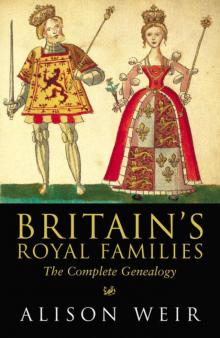 Britain's Royal Families: The Complete Genealogy
Britain's Royal Families: The Complete Genealogy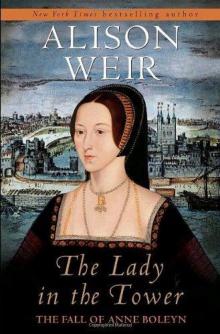 The Lady in the Tower: The Fall of Anne Boleyn
The Lady in the Tower: The Fall of Anne Boleyn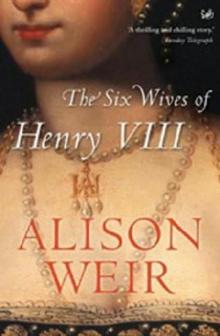 Six Wives of Henry VIII
Six Wives of Henry VIII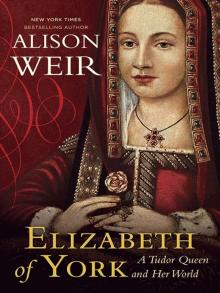 Elizabeth of York: A Tudor Queen and Her World
Elizabeth of York: A Tudor Queen and Her World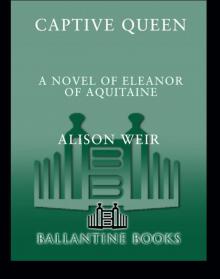 Captive Queen
Captive Queen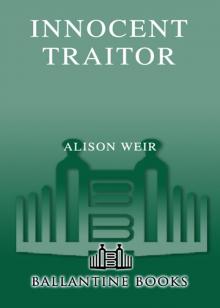 Innocent Traitor
Innocent Traitor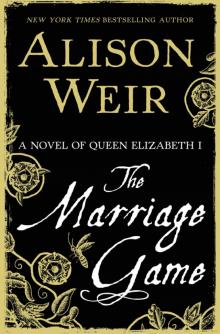 The Marriage Game
The Marriage Game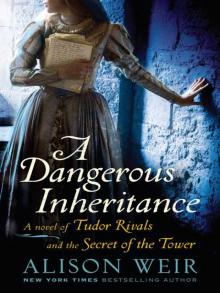 A Dangerous Inheritance
A Dangerous Inheritance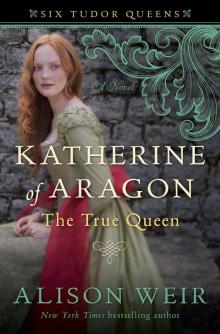 Katherine of Aragón: The True Queen
Katherine of Aragón: The True Queen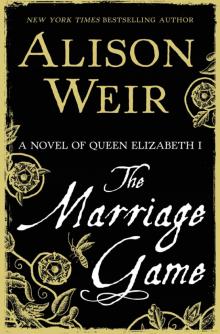 The Marriage Game: A Novel of Queen Elizabeth I
The Marriage Game: A Novel of Queen Elizabeth I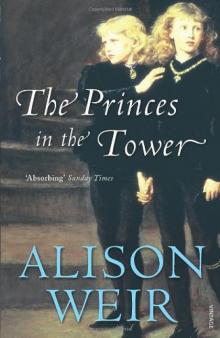 Princes in the Tower
Princes in the Tower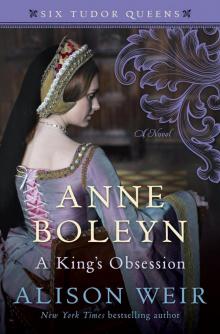 Anne Boleyn: A King's Obsession
Anne Boleyn: A King's Obsession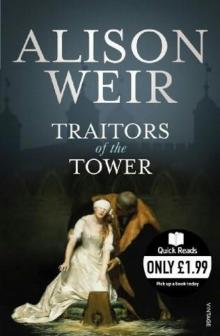 Traitors of the Tower
Traitors of the Tower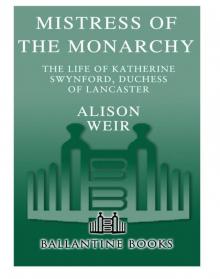 Mistress of the Monarchy: The Life of Katherine Swynford, Duchess of Lancaster
Mistress of the Monarchy: The Life of Katherine Swynford, Duchess of Lancaster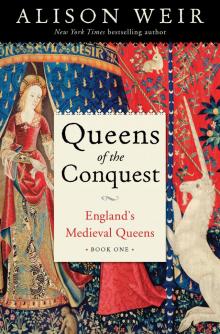 Queens of the Conquest: England’s Medieval Queens
Queens of the Conquest: England’s Medieval Queens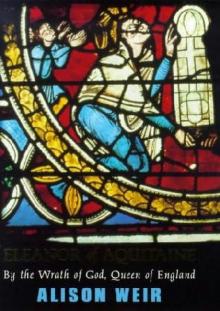 Eleanor of Aquitaine: A Life
Eleanor of Aquitaine: A Life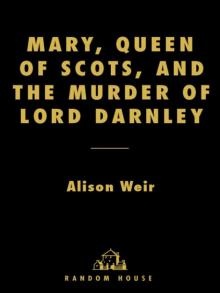 Mary, Queen of Scots, and the Murder of Lord Darnley
Mary, Queen of Scots, and the Murder of Lord Darnley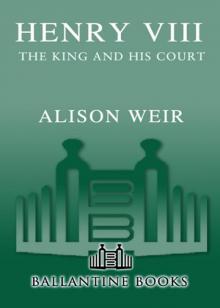 Henry VIII: The King and His Court
Henry VIII: The King and His Court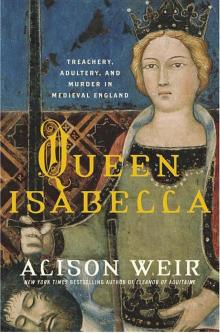 Queen Isabella: Treachery, Adultery, and Murder in Medieval England
Queen Isabella: Treachery, Adultery, and Murder in Medieval England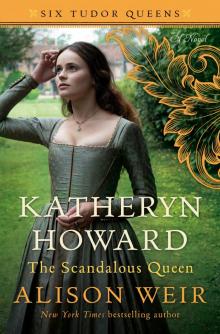 Katheryn Howard, the Scandalous Queen
Katheryn Howard, the Scandalous Queen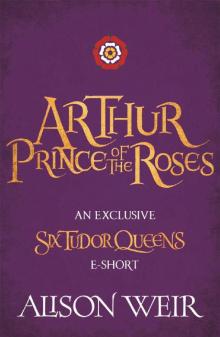 Arthur- Prince of the Roses
Arthur- Prince of the Roses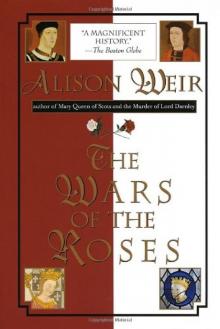 The Wars of the Roses
The Wars of the Roses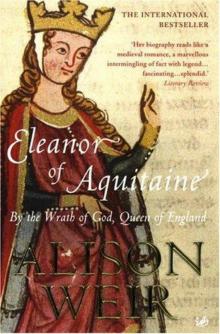 Eleanor of Aquitaine: By the Wrath of God, Queen of England
Eleanor of Aquitaine: By the Wrath of God, Queen of England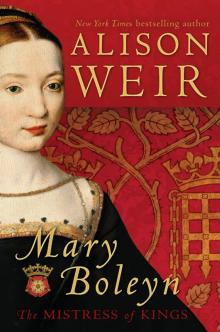 Mary Boleyn: The Great and Infamous Whore
Mary Boleyn: The Great and Infamous Whore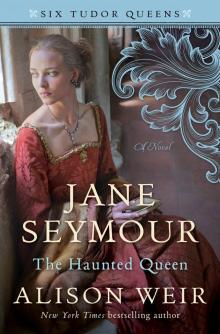 Jane Seymour: The Haunted Queen
Jane Seymour: The Haunted Queen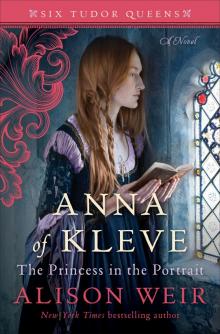 Anna of Kleve, the Princess in the Portrait
Anna of Kleve, the Princess in the Portrait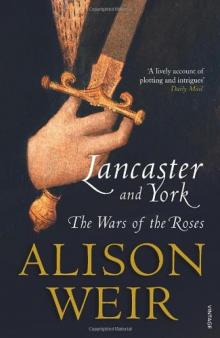 Lancaster and York: The Wars of the Roses
Lancaster and York: The Wars of the Roses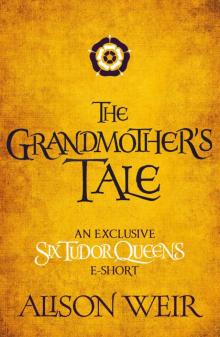 The Grandmother's Tale
The Grandmother's Tale The Princess of Scotland (Six Tudor Queens #5.5)
The Princess of Scotland (Six Tudor Queens #5.5)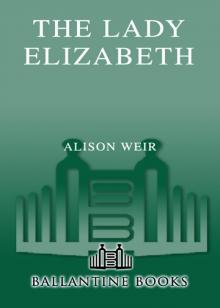 The Lady Elizabeth
The Lady Elizabeth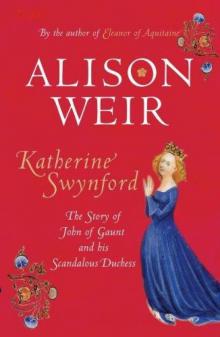 Katherine Swynford: The Story of John of Gaunt and His Scandalous Duchess
Katherine Swynford: The Story of John of Gaunt and His Scandalous Duchess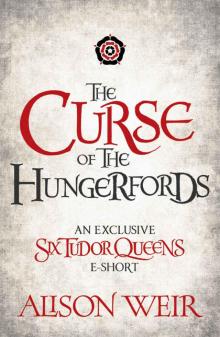 The Curse of the Hungerfords
The Curse of the Hungerfords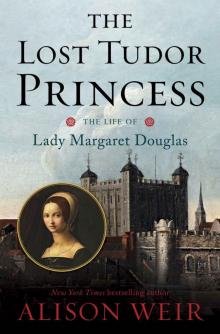 The Lost Tudor Princess: The Life of Lady Margaret Douglas
The Lost Tudor Princess: The Life of Lady Margaret Douglas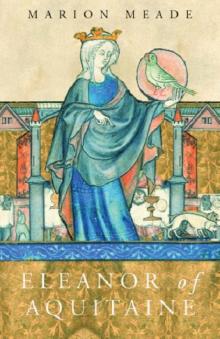 Eleanor of Aquitaine
Eleanor of Aquitaine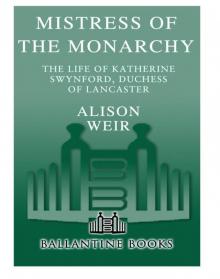 Mistress of the Monarchy
Mistress of the Monarchy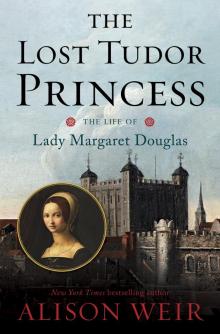 The Lost Tudor Princess
The Lost Tudor Princess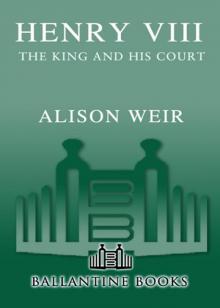 Henry VIII
Henry VIII Anne Boleyn, a King's Obsession
Anne Boleyn, a King's Obsession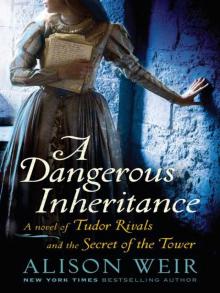 A Dangerous Inheritance: A Novel of Tudor Rivals and the Secret of the Tower
A Dangerous Inheritance: A Novel of Tudor Rivals and the Secret of the Tower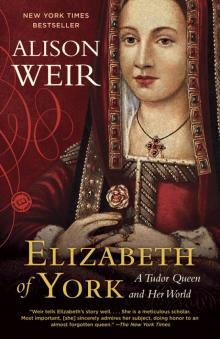 Elizabeth of York
Elizabeth of York Katherine of Aragon, the True Queen
Katherine of Aragon, the True Queen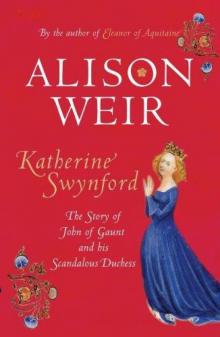 Katherine Swynford
Katherine Swynford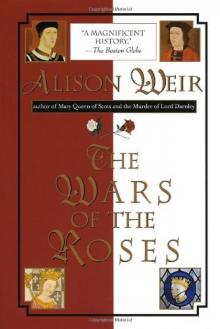 Wars of the Roses
Wars of the Roses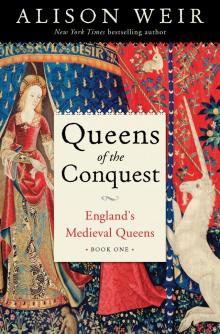 Queens of the Conquest
Queens of the Conquest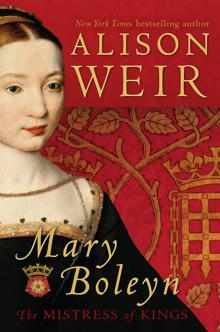 Mary Boleyn
Mary Boleyn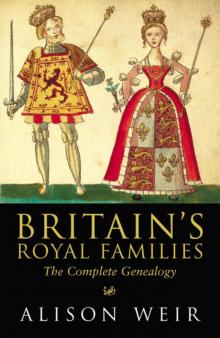 Britain's Royal Families
Britain's Royal Families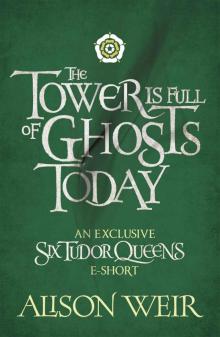 The Tower Is Full of Ghosts Today
The Tower Is Full of Ghosts Today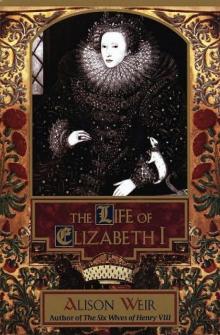 Life of Elizabeth I
Life of Elizabeth I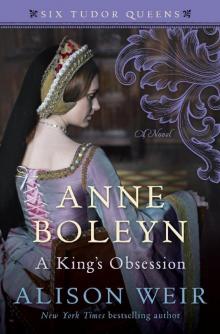 Anne Boleyn A King's Obssession
Anne Boleyn A King's Obssession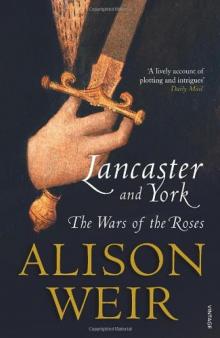 Lancaster and York
Lancaster and York Jane Seymour, the Haunted Queen
Jane Seymour, the Haunted Queen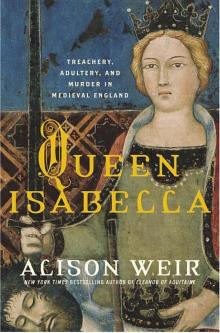 Queen Isabella
Queen Isabella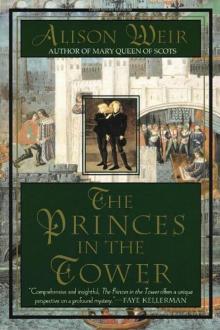 The princes in the tower
The princes in the tower